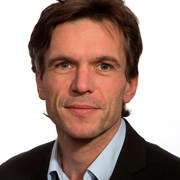The main aim of ACT LOUISE is to demonstrate how chemical looping combustion (CLC) technology can be implemented on waste-to-energy facilities as a cost-effective means of avoiding their CO2 emissions. As part of this, tests are being run using SINTEF’s 150 kWth CLC pilot unit and TU Darmstadt’s 1 MWth CLC pilot unit. The resulting data will then be used to inform the basic design of a 10 MWth CLC demonstration plant, thereby accelerating the deployment of CLC at an industrial scale.
However, the dual fluidised bed configuration of these plants presents complexities, in terms of a stepwise scaling up. The project, “Advance the application of Chemical Looping Combustion of non-recyclable wastes through an assessment of reactor scale-up”, intended to solve these challenges by running additional tests on the 150 kWth pilot using the same waste fractions, oxygen carriers and hydrodynamic conditions as will be used in the upcoming 1 MWth tests. The insights from these tests will contribute to the development of a framework for scaling up a CLC-WtE reactor system. This will result in an improved and consolidated design of the 10 MWth CLC demonstration plant.
The tests were conducted at SINTEF’s CLC pilot unit at the end of June, together with Philipp Mohn from TU Darmstadt. During four days of testing, all the waste-derived fuel was combusted and a lot of operational data was logged for further analysis.
“It was a very positive experience for both SINTEF and TU Darmstadt. This is a rather large facility, and we had to work closely together to manage the tests,” said Øyvind Langørgen from SINTEF.
In addition to the immediate results, the exchange of operational experience and hands-on knowledge of the CLC process was a main result of this testing campaign. This will be beneficial in both the continued work to scale up the CLC process, and communicating the suitability of this technology as a form of inherent CO2 capture for waste and biomass combustion to industrial actors. CLC presents a promising technology alternative to bio energy with CO2 capture and storage (BECCS), with the possibility of removing CO2 emissions.
This project was a spin off from the ACT LOUISE project and financed by ECCSEL’s ECCSELERATE project, under their calls for Transnational Access. ECCSEL is an initiative that provides access to ECCSEL facilities for researchers and industrial actors, with the goal of extending existing knowledge, closing knowledge gaps in CCUS research, and increase the use of European research infrastructure. SINTEF’s CLC pilot unit is among the ECCSEL facilities. This was the first time the Transnational Access possibility was used for the CLC pilot unit.


